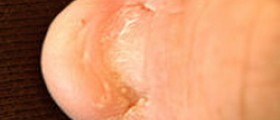
Down syndrome (also known as trisomy 21) is a genetic disorder, characterized by the presence of additional copy of 21st chromosome. Because of this, patients suffering from Down syndrome have three copies or just some extra parts of this 21st chromosome, instead of normally present 2 chromosomes.
This is one of the most commonly diagnosed genetic disorders and it is estimated that one out of every 733 babies is born with this genetic defect. According to statistics, it is more likely that parents of older age will conceive a child with Down syndrome. Older age of a mother or a father is found to increase the possibility to give birth to a child suffering from this syndrome, but besides genetics there are other factors which may also contribute to development of such genetic defect, including pure chance.
Babies can be diagnosed to suffer from Down syndrome while still in their moms’ womb by using tests like amniocentesis or chorionic villus sampling. However, some children are diagnosed to have this disorder at birth.Physical Characteristics of Down Syndrome
Children and adults suffering from this syndrome are usually easily identified because of certain physical characteristics. These patients have unusually rounded face, flat profile, shorter limbs and are shorter than healthy individuals. Many of them also have abnormally small chin, protruding or oversized tongue and just one crease across one or both palms of the hands.
Eyes are also very specific. These patients commonly have almond shaped eyes, which are slightly slanted upward (regardless the race or ethnicity). There is a small fold of the skin inside the eye (epicanthic fold), which is actually responsible for the shape of Down syndrome patients’ eyes. These people commonly have white patches known as Brushfield spots on the edge of the iris of the eyes.Down Syndrome - Effects and Complications
Down syndrome is well known to cause developmental impairment and these people usually have lower than average cognitive abilities. Sometimes, this is just mild problem, but there are moderate impairments as well. Family support, tutoring and therapies can enable these patients to finish high schools and colleges and live normally. Very small percent of Down syndrome patients is severely intellectually impaired.
Some medical problems may be present right after birth, including heart malformations and gastroesophageal reflux disease. Other health issues, like epilepsy, loss of hearing, sleep apnea or thyroid problems may appear after some time. Down syndrome patients often have eye problems, such as strabismus, cataracts, glaucoma or keratoconus.

















Your thoughts on this
Loading...